 Petzlover
Petzlover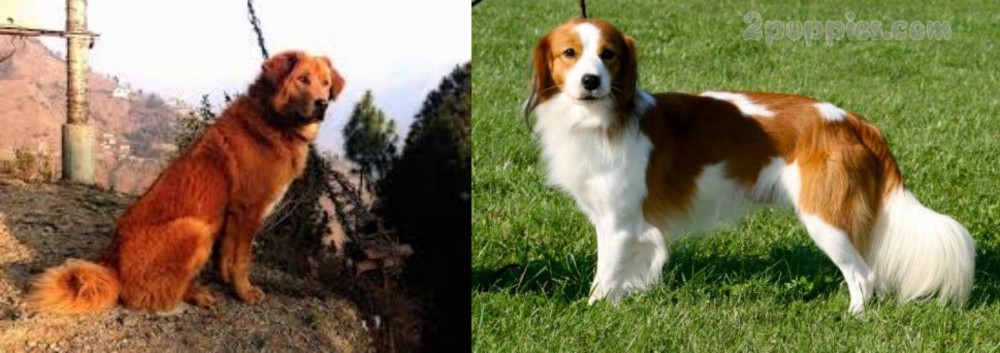 Himalayan Sheepdog is originated from India but Kooikerhondje is originated from Netherlands. Himalayan Sheepdog may grow 31 cm / 13 inches higher than Kooikerhondje. Himalayan Sheepdog may weigh 34 kg / 75 pounds more than Kooikerhondje. Both Himalayan Sheepdog and Kooikerhondje has same life span. Himalayan Sheepdog may have more litter size than Kooikerhondje. Himalayan Sheepdog requires High Maintenance. But Kooikerhondje requires Low Maintenance
Himalayan Sheepdog is originated from India but Kooikerhondje is originated from Netherlands. Himalayan Sheepdog may grow 31 cm / 13 inches higher than Kooikerhondje. Himalayan Sheepdog may weigh 34 kg / 75 pounds more than Kooikerhondje. Both Himalayan Sheepdog and Kooikerhondje has same life span. Himalayan Sheepdog may have more litter size than Kooikerhondje. Himalayan Sheepdog requires High Maintenance. But Kooikerhondje requires Low Maintenance
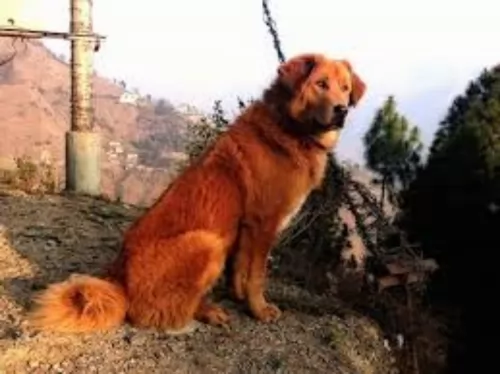 The Himalayan Sheepdog comes from Nepal originally and was bred as a guardian for livestock. The exact location where the breed comes from is not documented well but it is thought that they come from North India and Nepal and they are rare outside of that area. They are a mountain dog – close in ancestry to the Himalayan Mastiff, and the Kinnaur Sheepdog of Tibet (Himalaya). All these Himalayan mountain dogs were all called “Gaddi dogs”. The term was used for all the large dogs no matter what their breeds actually were.
The Himalayan Sheepdog comes from Nepal originally and was bred as a guardian for livestock. The exact location where the breed comes from is not documented well but it is thought that they come from North India and Nepal and they are rare outside of that area. They are a mountain dog – close in ancestry to the Himalayan Mastiff, and the Kinnaur Sheepdog of Tibet (Himalaya). All these Himalayan mountain dogs were all called “Gaddi dogs”. The term was used for all the large dogs no matter what their breeds actually were.
The Himalayan Sheepdog is called by various names depending on where they were from. They are called Gaddi Leopardhund in Himachai Pradesh, In Nepal they are known as Bhote Kukkur or Bhotiya. Then there are Chamba Gaddi dogs. They are an ancient breed that existed before documentation on breeds was kept.
They acted as both guardians and herders. They guarded the mountain men’s encampments as well as the livestock. They were also used at times to hunt large animals. Today they are found only within Nepal and India. These Himalayan Sheepdogs are on the verge of extinction in India. There are no breeding programs and their isolation has caused the dilution of the gene pool. It is not recognized by any clubs including the UKC and the AKC.
 The Kooikerhondje is of Dutch ancestry and is a medium-sized spaniel-type dog breed that has always been a working dog, being used to attract ducks into traps but being bred as an all-purpose dog.
The Kooikerhondje is of Dutch ancestry and is a medium-sized spaniel-type dog breed that has always been a working dog, being used to attract ducks into traps but being bred as an all-purpose dog.
They were particularly sought after in the 17th and 18th century, appearing in paintings of Rembrandt. The breed died out during World War II, but it was rescued by Baroness van Hardenbroek van Ammerstol and recognized by the Dutch Kennel Club.
In January 2018 the Nederlnadse Kooikerhondje is fully recognized by the American Kennel Club, competing in the Sporting Group.
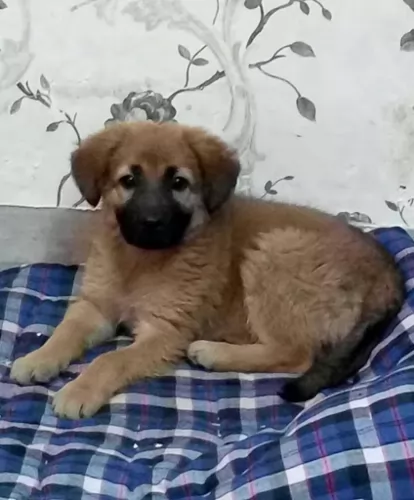 The breed is a large dog, very athletic and strong. The Himalayan Sheepdog is muscular with a deep chest, strong neck and strong shoulders. It has a medium tail that is thick and busy, curled high over its back. It is a daunting dog that can be very intimidating. They have well padded and large paws. With a broad head and wide forehead, they have a strong, wide muzzle. Their ears are high on the head and hang from the sides. They have almond shaped medium eyes that are deep set with a black nose.
The breed is a large dog, very athletic and strong. The Himalayan Sheepdog is muscular with a deep chest, strong neck and strong shoulders. It has a medium tail that is thick and busy, curled high over its back. It is a daunting dog that can be very intimidating. They have well padded and large paws. With a broad head and wide forehead, they have a strong, wide muzzle. Their ears are high on the head and hang from the sides. They have almond shaped medium eyes that are deep set with a black nose.
They are a very active and swift dogs. By their nature they are constantly in motion, patrolling their territory and guarding their flock and people. Their devotion to their people and their courage is the stuff of legends. Their coat is double with a large ruff around their necks that resembles a mane. The inner coat is dense and short while the outer coat is longer but dense as well.
 The Kooikerhondje is a medium sized dog standing at 35 – 40cm at the withers and weighing anything between 9 – 11kg. He has a medium length coat which is a red and white color, with floppy ears.
The Kooikerhondje is a medium sized dog standing at 35 – 40cm at the withers and weighing anything between 9 – 11kg. He has a medium length coat which is a red and white color, with floppy ears.
A distinctive feature with this dog is the black tips of the long ears, and which are referred to as earrings. The coat can be wavy or straight. Typical of spaniel-like dog his plumed white tail moves jauntily, as though always happy. When you look at him he has a gentle expression, while being alert too.
Friendly, content, cheerful, good-natured and quiet – these are some of the words which describe the amicable Kooikerhondje.
He is also intelligent, wanting to please his owner. He is good around children too, but make sure your children are taught to respect and be kind to animals.
The Kooikerhondje is an adaptable dog and can be as as quiet or as jaunty as you want. He is adaptable to city life or life in the country, but he will need to be exercised and taken for walks.
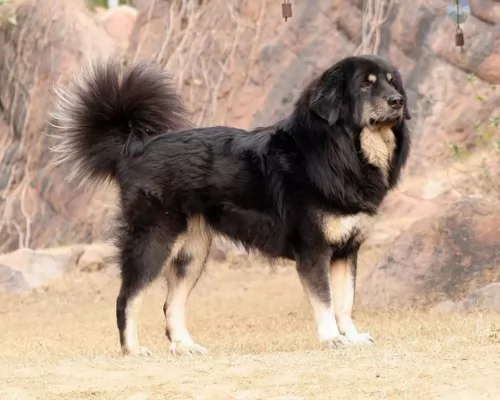 Yes with enough proper socialization
Yes with enough proper socialization
Protection and loyalty
They are not especially adaptable and need a large yard. They are not good in an apartment.
Intelligent but stubborn and independent making them able to learn if they want to.
 Kooiker, as he’s fondly referred to for short, has a happy personality, and bringing him into your home will be like bringing in some joy and sunshine.
Kooiker, as he’s fondly referred to for short, has a happy personality, and bringing him into your home will be like bringing in some joy and sunshine.
He is a fun, energetic companion and you can count him in for all your outdoor activities such as walk, hikes and swimming. He’ll love to fetch every ball you throw, and that’s because he is such a playful dog.
He is a loving dog too, making a great playmate for children. Treat him like one of the family, and the Kooiker will surprise you with the amount of pleasure he brings.
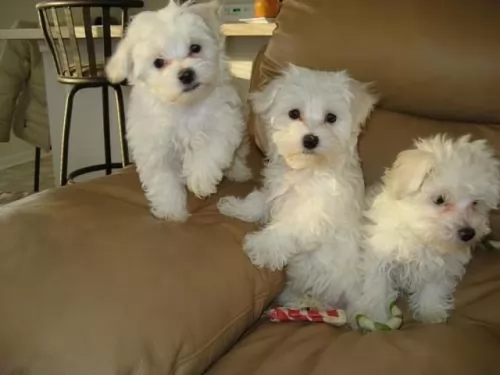 This is a pretty healthy breed with very few health issues. They have the usual large dog issues.
This is a pretty healthy breed with very few health issues. They have the usual large dog issues.
 The lifespan of the Kooikerhondje is about 12 – 14 years, and looked after well, he can be your canine friend for many years.
The lifespan of the Kooikerhondje is about 12 – 14 years, and looked after well, he can be your canine friend for many years.
He loves his food and can put on weight easily, and obesity is one of the health problems he may have to deal with. Kidney- and eye problems might also be something that you may have to deal with with this dog breed, although most unlikely.
Obesity in dogs is very sad because its a disease that can be avoided. Dogs that are over fed are at particular risk because they can't exercise, and this in itself can lead to serious health issues.
There are different causes of obesity, but it is mostly caused by the dog being fed- and eating more than he can expend. Just like with humans, obesity becomes more common in old age as the metabolism slows down. A dog that has been neutered or spayed also tends to put on weight more easily.
If you're unsure what to do for your obese dog, speak to your vet who can recommend a diet for your pet. Remember that with feeding your dog, prevention is better than cure.
Kidney problems, though more common with older dogs, can strike at any age. The kidneys play a host of important functions such as regulating blood pressure. Sometimes kidney failure is slow and the symptoms may not be obvious.
With renal failure, your pet will be lethargic, they will be vomiting, be depressed and have weight loss. Other possible symptoms are increased thirst, blood in the urine and seizures. Chronic renal failure can't be cured but treatment is aimed at making your pet comfortable.
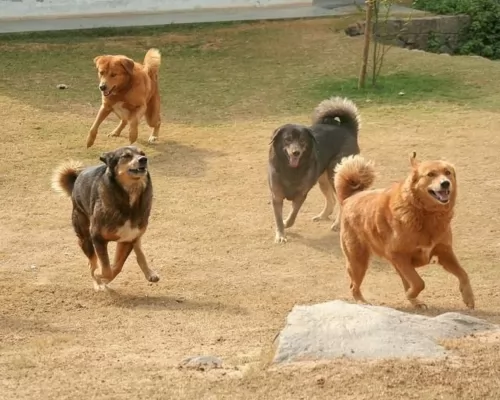 Feed the puppy 2-3 times a day with a total of two cups of a quality dog food for large breed dogs.
Feed the puppy 2-3 times a day with a total of two cups of a quality dog food for large breed dogs.
Feed the adult dog twice a day with 3 to 4 cups of a high quality dry dog food for large breed dogs.
They are very strong and athletic.
The Himalayan Sheepdog needs exercise but not to be overworked. They should be taken on long walks at least once a day. They might play fetch or run in a yard, but they don’t like too much exercise.
 Your Kooikerhondje is smart, happy-go-lucky dog and it is important to know your pet's needs so you can care properly for him. Exercise your Kooikerhondje daily as he is a high-energy dog and even short walks can be good for him.
Your Kooikerhondje is smart, happy-go-lucky dog and it is important to know your pet's needs so you can care properly for him. Exercise your Kooikerhondje daily as he is a high-energy dog and even short walks can be good for him.
He absolutely loves balls games too. He can live in the city or the country but will do better when he has the chance for exercise. Urban- and city environments can work if there are nearby parks to cater for his energy.
The Kooikehondje has long hair but he is surprisingly low maintenance and will simply require a brush once or twice a week.
If you love your pet but just can't find the time to see to his grooming needs, take him to the vet for regular checkups to check ears, teeth and eyes. They can come down with problems with the eyes or have some or other skin allergy.
Give your Kooikerhondje the right food, and make sure its the highest quality. If you buy him commercially manufactured food, pay attention to the ingredients list and make sure that proper meat is at the top of the list.
Add cooked chicken, brown rice and vegetables to his dry kibble as a tasty treat sometimes. Learn to recognize the less nutritious ingredients such as wheat or grain. Also learn to avoid foods which are bad for your dog such as chocolate and onions.